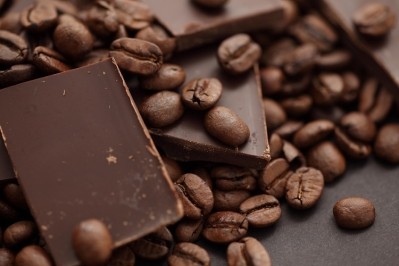Oats flourish as an ingredient in European dairy-free ice cream

Plant-based ice cream remains a niche sector. Brands have suffered in this space too. Swedish oat milk firm Oatly withdraw its dairy-free ice cream tubs in the UK in May and later launched soft serve ice cream into UK food service. But the European sector did enjoy 14% sales growth in 2020-22, according to the Good Food Institute. Some 14% of Germans now eat non-dairy ice cream, up from one in ten (9%) in 2019, accordign to Mintel. And there is evidence of consumers cross-purchasing both dairy and non-dairy ice cream.
Oats have long been the hero ingredient in plant-based milk alternatives, and now they have well and truly established themselves as a favourite in the ice cream sector, according to new research from Mintel GNPD.
Launches including oats as a base ingredient account for around three in ten (27%) European plant-based ice cream launches between April 2022-March 2023, the data reveal, almost double (16) the share they accounted for over the same period in 2021-22 and triple the share for 2019-20.
The share of European plant-based ice cream launches with oats as an ingredient was almost double the share of launches with almonds between April 2022 and March 2023. This trend echoes how oat milk has overtaken almond milk in share of European plant-based milk launches.
In the UK, young consumers are more likely to associate oat milk with sustainable farming than other non-dairy milks, which bodes well for oat-based ice cream. Producers may be tempted to capitalise on this attitude and replace other plant-based ice cream in their existing products with oat variants, or add an oat milk variant to their current plant-based range.
However, one challenge which plant-based ice cream brands face is the taste perception. Only a third (35%) of consumers in the UK agree that non-dairy ice cream is just as enjoyable as dairy-based ice cream.
Brands are also attempting to elevate consumer expectations of texture in oat-based ice creams, which can be reflected in the growing share of chunky, soft and crunchy texture claims.
Soyabean is thriving too
In the UK, it's not just oats which are flourishing, soyabean is thriving too. In 2022-23 over a quarter (26%) of UK ice cream launches featured soyabean, just behind oats which accounted for around a third (32%) of all launches.
Ophélie Buchet, Mintel Global Food & Drink Analysts said: “Oats have long been the hero ingredient in plant-based milk alternatives, assisted by their reputation for being relatively planet-friendly and nutritious.
“Ice cream brands should capitalise on the oat milk boom to target young consumers by selling its unique taste and lower environmental footprint.”
“However, environmental credentials alone will not secure success for plant-based ingredients. They must also deliver on taste, price and usability, which far outweigh sustainability in consumers’ food and drink choices. This is seen for example in the fortunes of various plant milks.
“Beyond oats – while an approachable flavour profile and product innovation ensuring dairy-like usability have propelled rapid growth for oat milk, many others like hemp and pea milk have struggled to gain traction despite their strong green proposition.”



